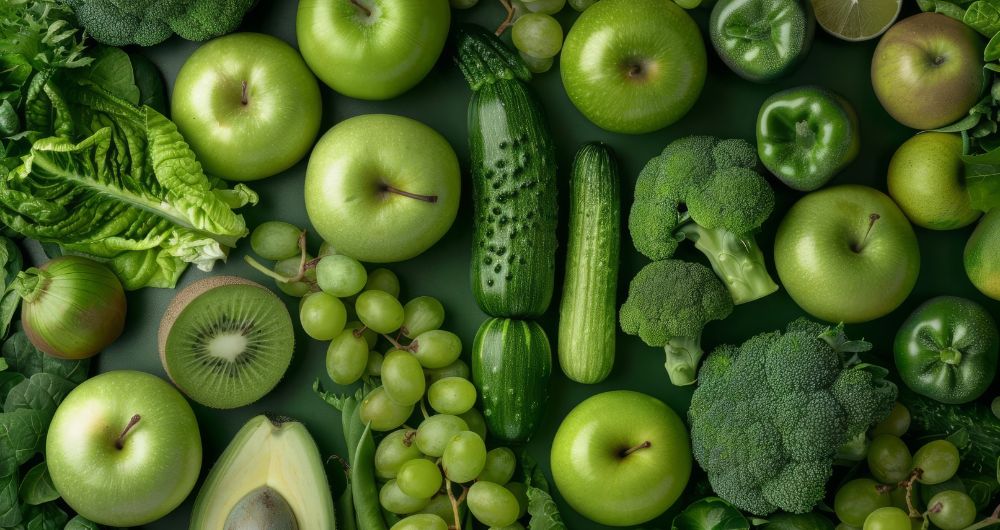
Boost Your Protein Intake: Powerhouse Vegetables For Plant-Based Diets
Do Veg Have Protein?
For those who follow a plant-based diet, a common concern is getting enough protein. Many people still believe that meat and dairy are the only significant sources of this vital nutrient. However, vegetables also contain protein, making them a valuable part of any vegan or vegetarian meal plan. This article aims to explore the different types of vegetables rich in protein, the benefits of incorporating them into your diet, and how you can boost your protein intake with plant-based protein powders.
Yes, Vegetables Have Protein!
While meat, eggs, and dairy are common protein sources, vegetables also provide valuable proteins. Though lower in protein per serving, they contribute to daily needs, especially when combined with other plant-based foods. Consuming vegetable proteins as part of a balanced diet offers a range of nutrients.
High-Protein Vegetables
Here are some vegetables high in protein that you can easily incorporate into your diet:
1. Spinach
Spinach is not only rich in iron but also contains a surprising amount of protein. Just one cup of cooked spinach provides about 5 grams of protein. This leafy green is also a great source of vitamins A, C, and K, making it a nutritional powerhouse.
2. Broccoli
Broccoli is another vegetable that offers a generous protein content. One cup of cooked broccoli contains around 4 grams of protein, along with a good dose of fiber and essential vitamins such as vitamin C and K. Additionally, broccoli has compounds that have been linked to cancer prevention.
3.Brussels Sprouts
These mini cabbages are packed with nutrients. One cup of cooked Brussels sprouts provides about 4 grams of protein. They are also high in antioxidants and can help support immune function and reduce inflammation.
4. Green Peas
Green peas are a versatile vegetable that can be added to various dishes. One cup of cooked green peas contains nearly 9 grams of protein. They are also an excellent source of dietary fiber, providing nearly a third of the daily recommended intake.
5. Kale
Kale isn't just a superfood for its vitamins and minerals; it also contains protein. One cup of cooked kale provides about 3 grams of protein. Kale is also rich in antioxidants and has been shown to have numerous health benefits, including lowering cholesterol and reducing the risk of heart disease.
Additional High-Protein Vegetables
There are many other vegetables that can contribute to your protein needs, such as:
• Asparagus: About 4 grams of protein per cup.
• Artichokes: Approximately 4.2 grams per cup.
• Sweet Corn: Around 4.7 grams per cup.
• Mushrooms: Varies by type, but can range from 2-5 grams per cup.
Benefits of a Plant-Based Diet Incorporating vegetables rich in protein into your diet has numerous benefits:
• Healthier Heart: Plant-based diets are linked to lower risks of heart disease due to lower levels of saturated fat and cholesterol.
• Weight Management: Vegetables are low in calories but high in nutrients, making them excellent for weight management and preventing obesity.
• Better Digestion: High fiber content in vegetables promotes better digestion and helps maintain a healthy gut microbiome.
• Environmental Impact: Consuming more plant-based foods helps reduce your carbon footprint and supports sustainable agriculture practices.
Boosting Protein Intake with Plant-Based Protein Powders
While vegetables provide essential proteins, some people find it challenging to meet their daily protein needs solely from whole foods. This is where plant-based protein powders come in handy. These powders are made from sources like peas, hemp, and brown rice, providing a concentrated amount of protein.
Benefits of Plant-Based Protein Powders:
• Convenience: Easy to incorporate into shakes, smoothies, and recipes, making it simple to increase your protein intake
• Complete Proteins: Many plant-based protein powders are formulated to include all essential amino acids, which are necessary for muscle repair and overall health
• Digestibility: Generally easier to digest than some animal-based protein powders, making them suitable for people with lactose intolerance or other digestive issues.
Vegetables are not only rich in vitamins and minerals but also contain protein. Including a variety of high-protein vegetables in your diet can help meet your nutritional needs while providing additional health benefits. For those who need an extra protein boost, plant-based protein powders are an excellent supplement to a balanced diet. If you're committed to a plant-based lifestyle, rest assured that you can get the protein you need from vegetables and plant-based supplements.
